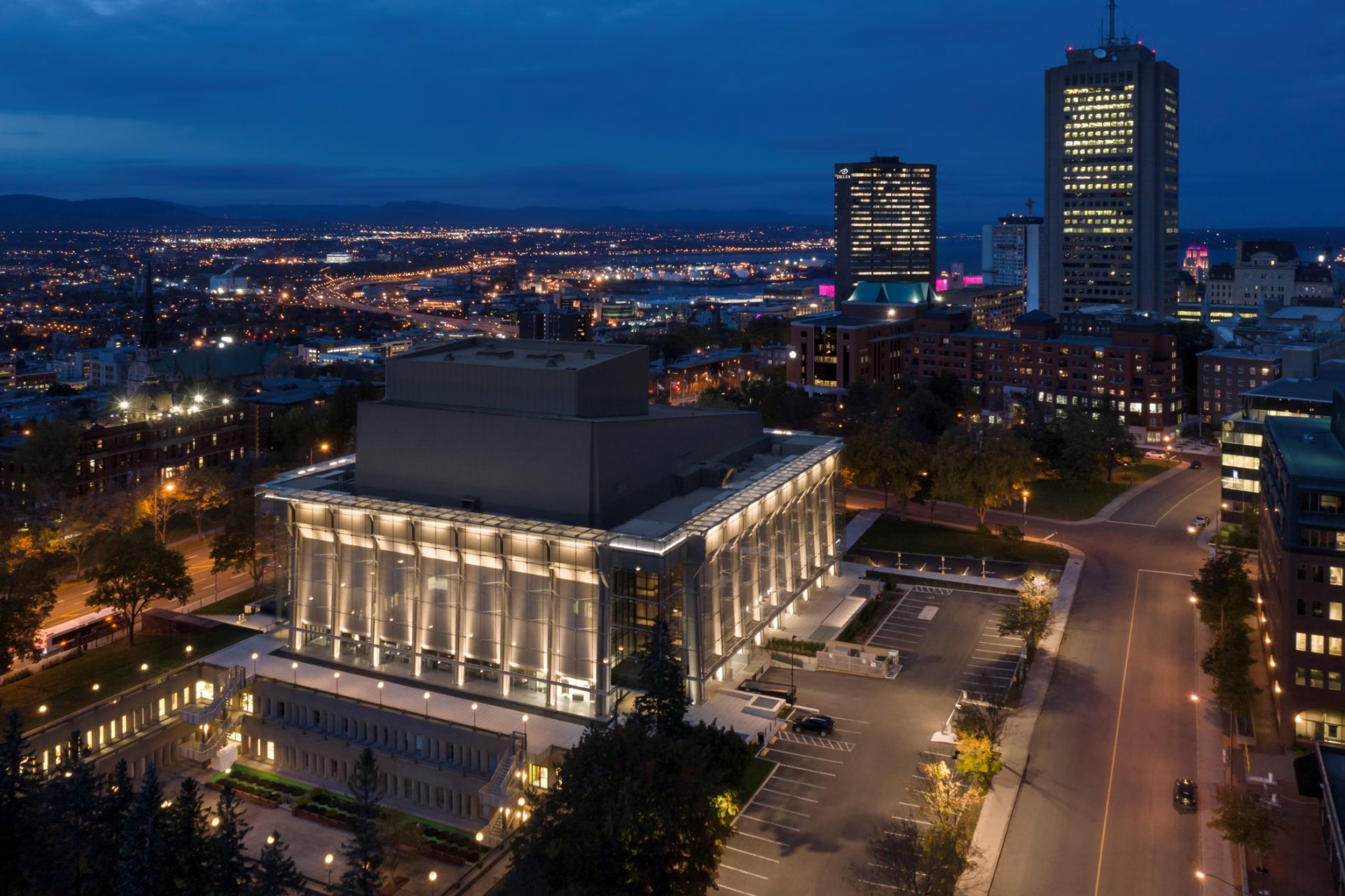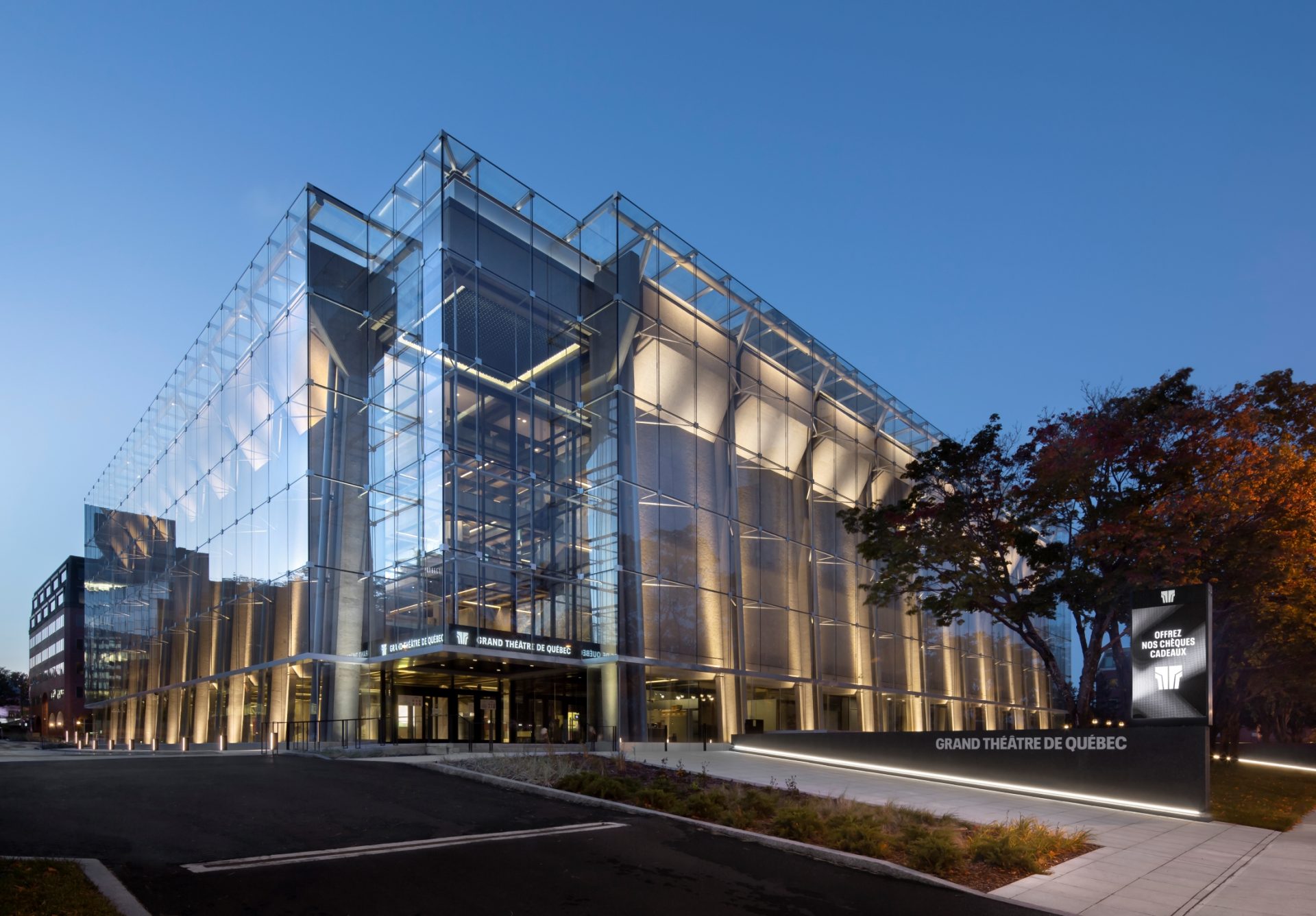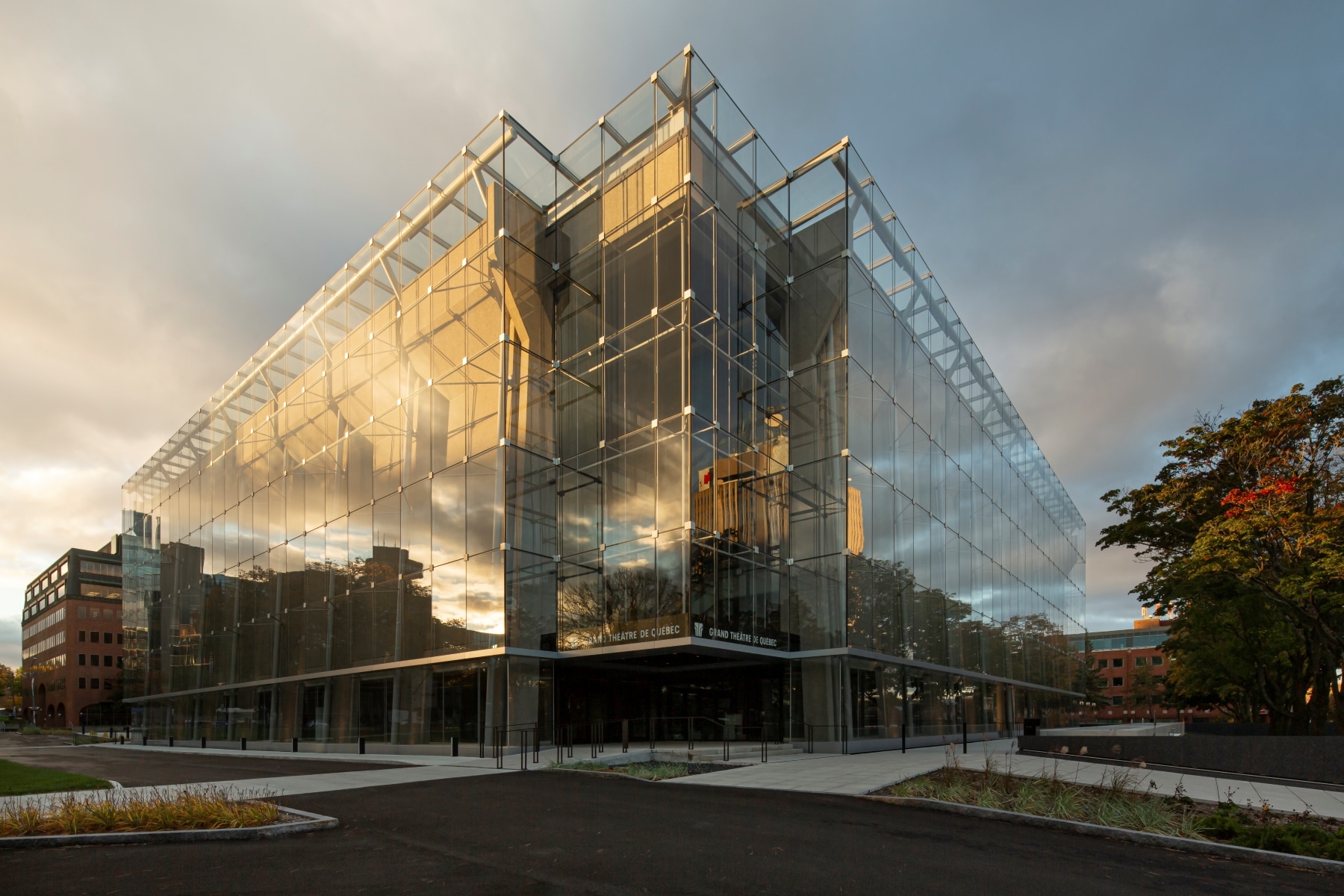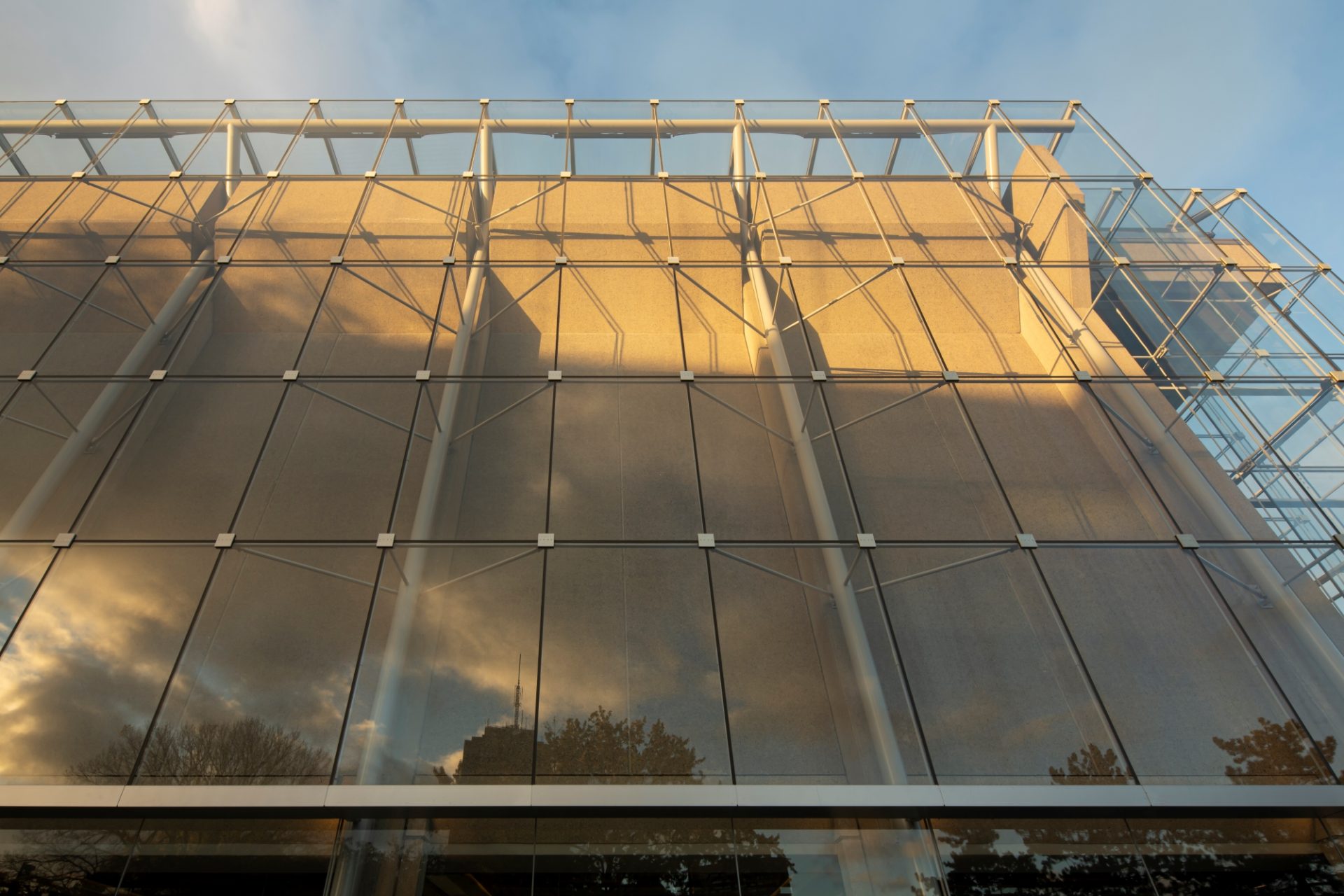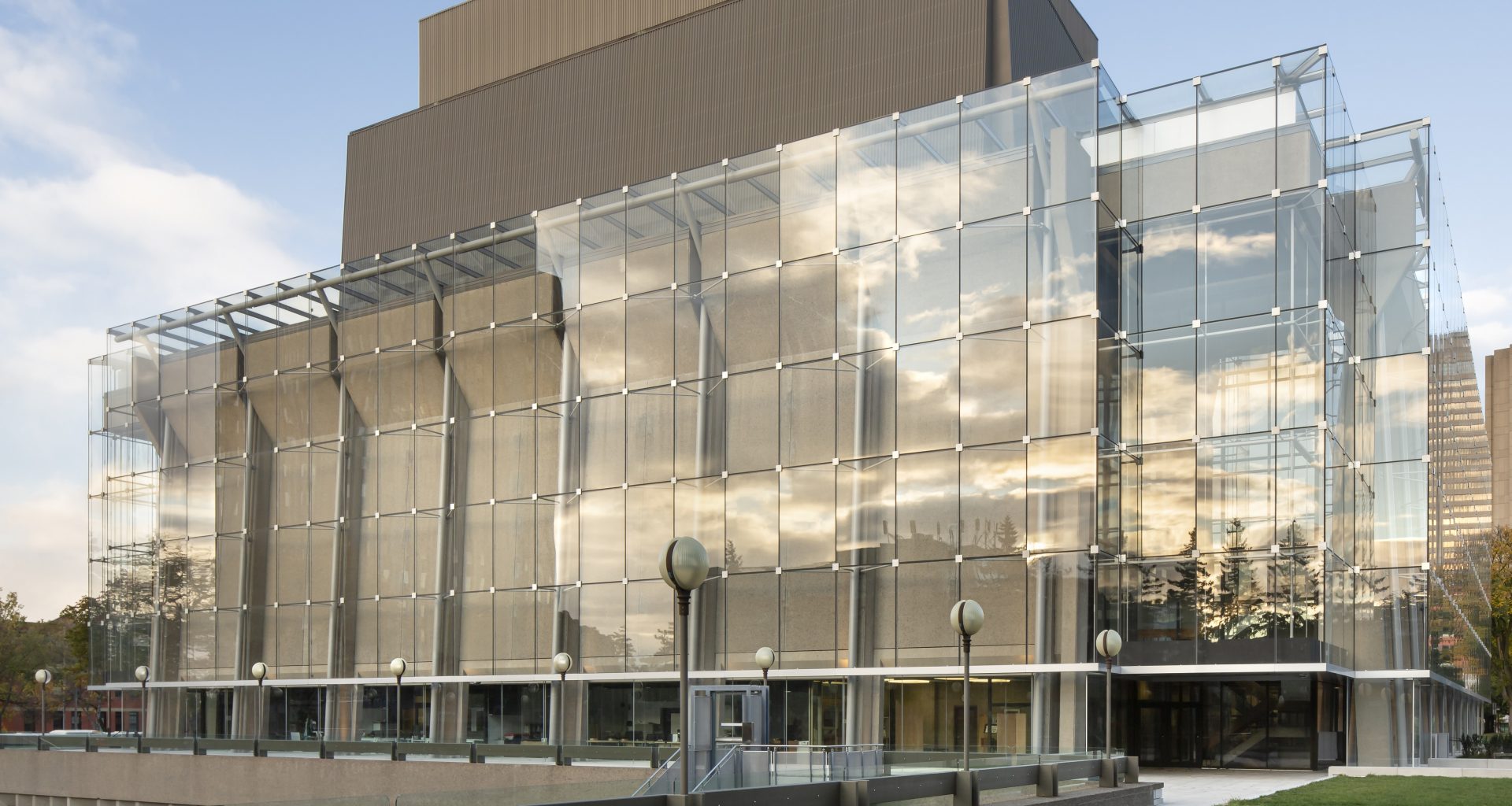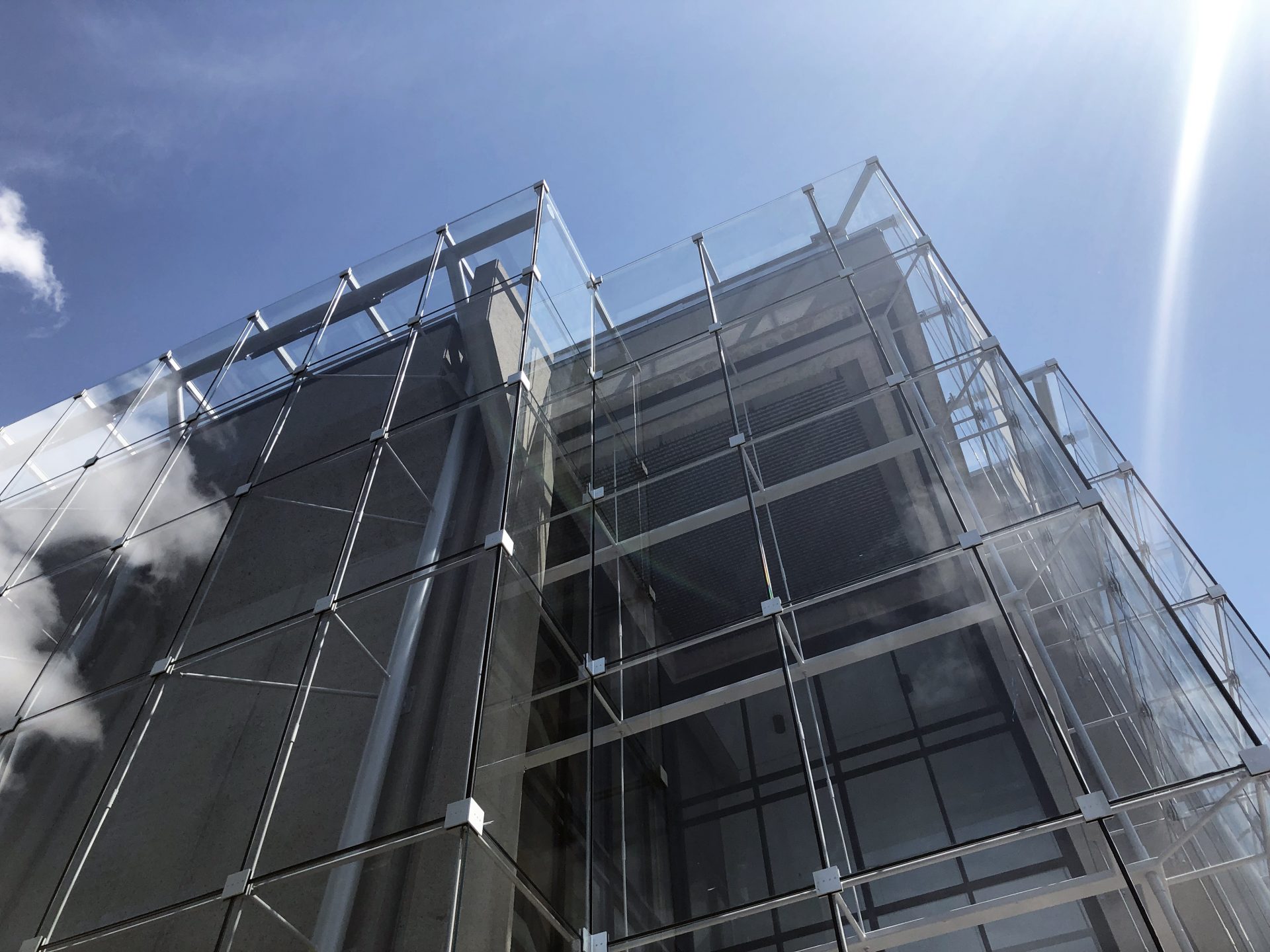A unique and sensitive solution
Client
Société du Grand Théâtre de QuébecLocation
Quebec City, QC, CanadaYear
2020Collaboration
Lemay and Atelier 21 in consortium-
Discipline(s)
Architecture
Structural Engineering
A unique and sensitive solution
Prized for its brutalist architecture by Victor Prus, the Grand Théâtre de Québec, inaugurated in 1970, required a major intervention to restore and protect its prefabricated concrete indoor and outdoor walls, as well as a historic mural by Jordi Bonet, intimately intertwined with them. Moisture infiltration had caused severe disintegration of the concrete panels and their anchors.
The concrete icon reflects the end of the Quiet Revolution in Quebec; the Bonet mural is one of the largest in the world. The fragility of the work and the inability to directly access the anchors required a radical solution.
The innovative glass casing is a delicate response to a complex problem. Transparent, minimalist and almost immaterial, it acts as an extension of the original building, using the same finely tuned structural logic and composition; in fact, the brutalist lines and artistic narrative are even more striking, thanks to Lemay’s subtle solution. The glass can appear solid or immaterial depending on the light, sometimes blurring the boundaries of the building; it fades, disappears, reflects, illuminates, articulating the project discreetly and sensitively. Amplified according to the building’s morphology, it leaves the concrete masterpiece intact and perfectly visible.
Energy-efficient and economical, the casing shields the Grand Théâtre from the elements by creating a secondary, tempered envelope housing a low-flow heat recovery and thermal mass system. Resultingly constant interior temperature and humidity levels (crucial for preserving the musical instruments inside) spare the external concrete panels, their integrated mural and their supporting anchors from any further degradation.
The construction systems put forward were almost all custom-designed, with a delicate steel structure and myriad components requiring intense and sustained reflection and teamwork among architects, engineers, construction specialists and manufacturers. Together, they produced an entirely new architectural solution that heralds a new act for Quebec culture.
To learn more, watch an in-depth look at the project by Découverte on ICI Radio-Canada.
See Quebec City’s Grand Theatre on Vimeo +
Watch our series Sketching Stories, episode 2: Grand Théâtre de Québec.
